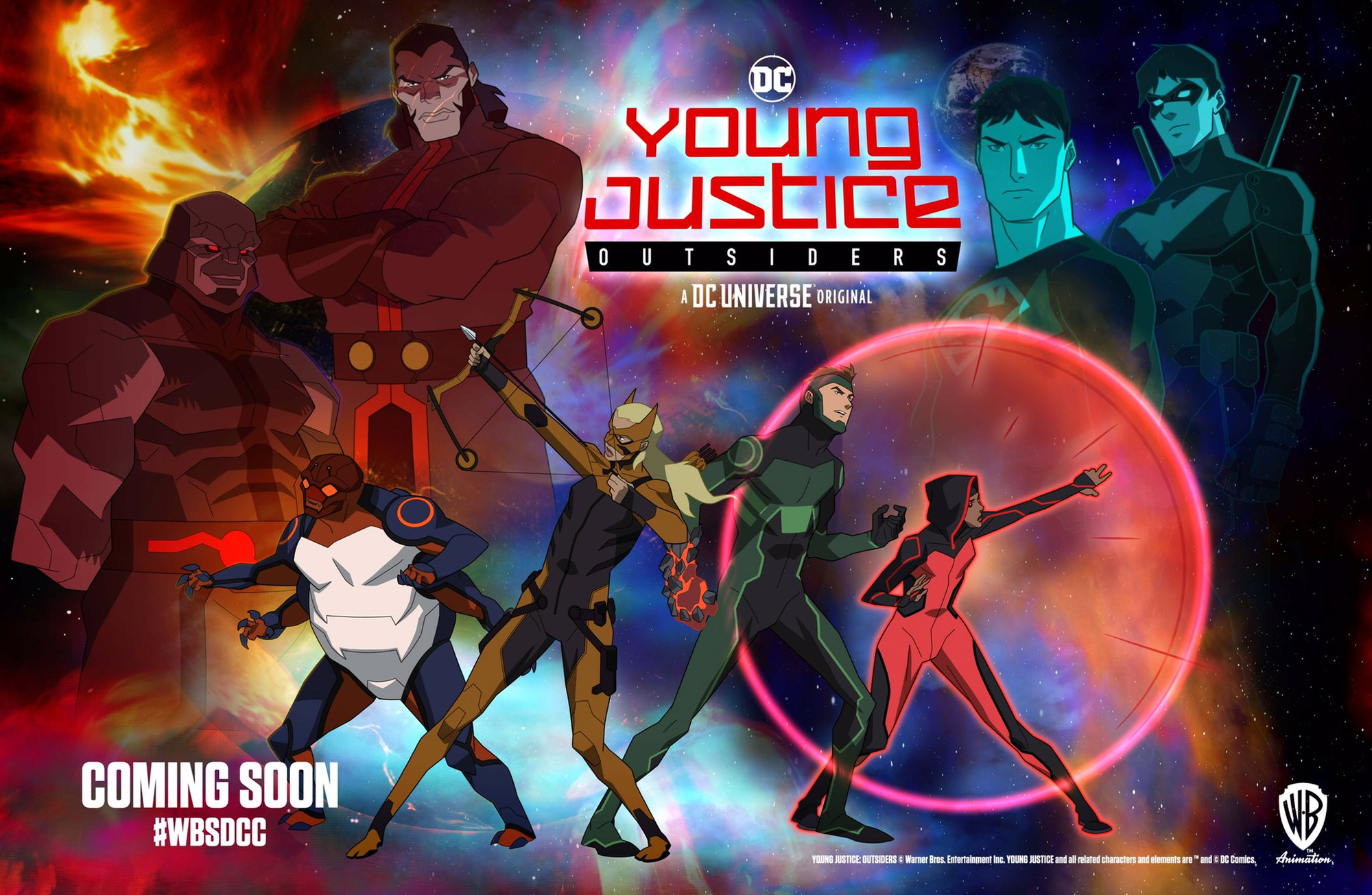
I remember the announcement of Young Justice season 3. Young Justice was my favourite Cartoon network show as an early teen; I binged both seasons over the course of two days the instant my parents first subscribed to Amazon Prime half a decade ago. I had just finished rewatching the entirety of season one and two [Invasion] the weekend before, and I opened up Facebook on my Monday lunch break to see a photo of a glowing red three posted by the Young Justice page. I, along with every DC fan, lost my mind.
Therefore, it is with an incredibly heavy heart that I lament the catastrophic failure of Young Justice to deliver on its prior precedent of an interconnected story and compelling interpersonal character drama. Young Justice, just as the majority of Marvel Comics and some DC titles (like the loathsome Lois Lane mini-series) has succumbed to the inability of writers to separate themselves from self-idolatry and a fixation with contemporary politics.
Of course, comic books are not entirely separate from politics. From DC?s war-time books featuring Superman slapping the Axis powers, to Stan Lee?s Soapbox wedged between pages of Cap and Falcon de-escalating racial supremacist groups during the height of America?s civil rights movement, the foundations of the big two is built on twentieth century events. However, to the writers inheriting the legacy of these characters: they are not your characters to rewrite and repurpose as you please. You have a privilege to write the characters of your childhood, and so are indebted to the pop-art pioneers who paved your career almost a century ago. So, you don?t just get to write Lex Luthor as Donald Trump (not least of all because the characters aren?t alike in ideology, but we?ll get to that).
Also, as Star Wars stands as everlasting evidence of this: the ability for a writer to have their art stand apart from times of heightened political partisanship is a mark of excellence. Seizing on a counter-zeitgeist allows your work to transcend its moment, and be contemporary without being immersed in the fixations of its time. Perhaps it is ironic that the criminal cabal of Young Justice are ?The Light?, when philosopher Giorgio Agamben defined contemporary artists as
?those who do not allow themselves to be blinded by the lights of the century, and so manage to get a glimpse of the shadows in those lights, of their intimate obscurity.?
But, in an effort at providing a holistic and reliable perspective on the series, let?s open with its achievements before commencing with a tirade of scathing criticism.
The new characters are a mixed bag of underdeveloped, compelling, and atrocious (more on Halo later), with the best being Geo-Force/Prince Brion Markov of Markovia. Brion?s hot-temper, paralleled by geo-kinetic powers, take him on a turbulent character arc: from orphaned heir to an Eastern European nation?s throne, to extroverted representative of a teenage superhero team, reunited with his sister and integrated into his new adoptive family of metahumans. But his emotionally-charged righteousness can?t be restrained forever: following repeated betrayals from Halo, Tara and Helga, his ability to trust has deteriorated, and he suffocates Baron Bedlam to avenge his parents and seize the Markovian throne from the seemingly-impotent succeeding rule of his brother.
As for the others: Forager was endearing, but had his storyline end with a cringe-inducing speech about representation that was so ham-fisted I had to check it hadn?t been lifted from a Buzzfeed op-ed. Cyborg took too long to become the charismatic motor-mouth from Motor City that we all know and love for my liking, but his first ?Booyah? was nonetheless satisfying. And Terra?s flashbacks to her Stockholm-syndrome father-daughter relationship with Deathstroke would have been far more compelling had the season not been so fragmented in its release. The separation of the season into two, with short episodes drip-fed in irregular quantities across the year (to encourage subscriptions to DC Universe to watch it week-by-week), was suicidal for the season?s narrative coherence and pacing. This no doubt contributed to the unforgivable wrangling of ?The Judas Contract? into five minutes of the finale episode, without H.I.V.E. or Jericho present, and with its famous ending completely reversed.
[By the way: the fact that the DC Universe streaming service is still only available in North America is an absolute joke.]
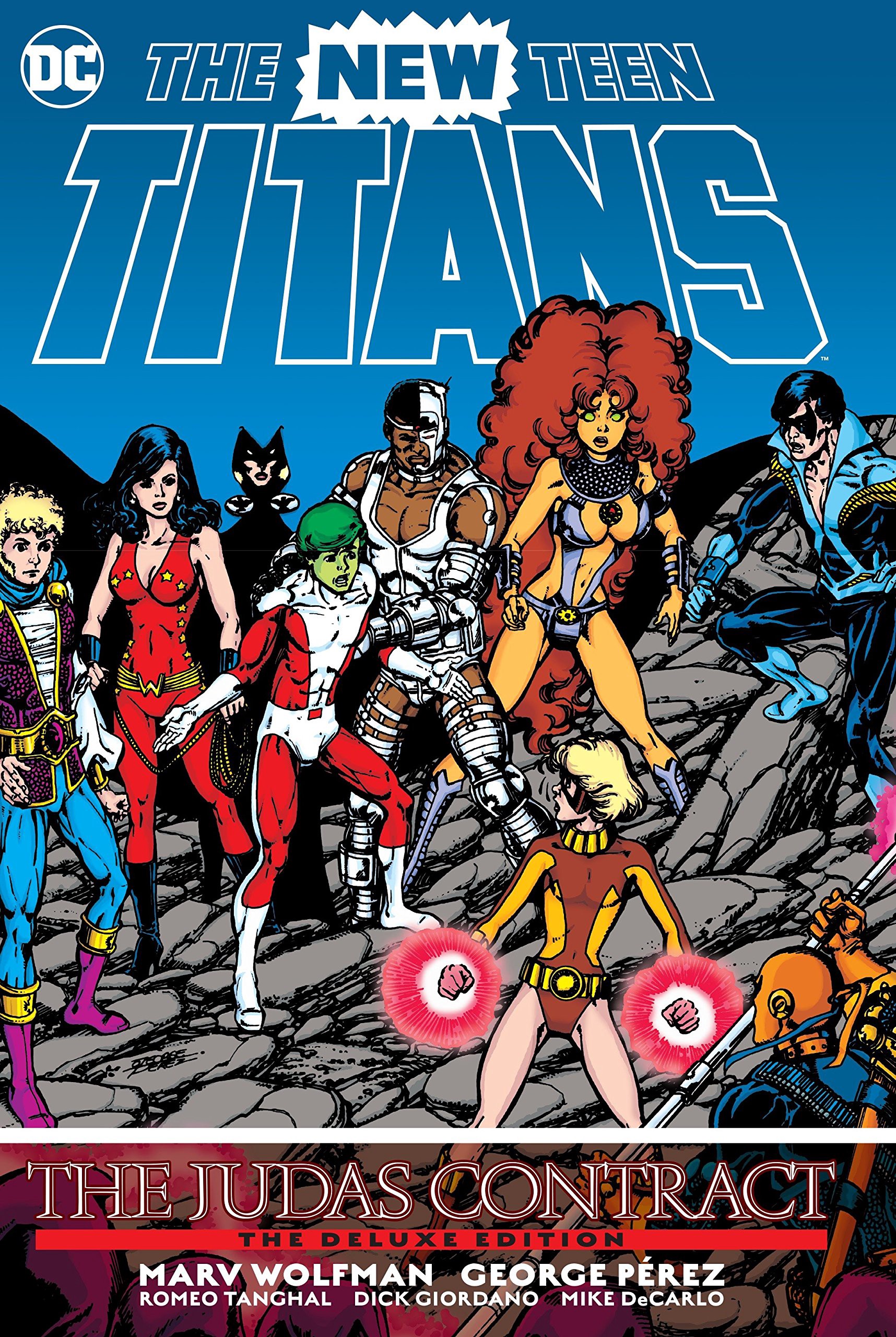
The strangest choice of the series was to completely drop characters showcased at comic-con, and spoken about in interviews by the showrunners prior to the season airing: Stephanie Brown/Spoiler, Arowette, and Thirteen. With the show?s trend toward more adult themes (from the decapitation of Ocean Master, to the child abuse in episode twenty, ?Quiet Conversations?), it would have been the perfect opportunity to explore a complex character like Mia Dearden, as Kevin Smith wrote her in the 2000s Green Arrow return arc ?Quiver?. The shift from promotion to product is so drastic, that (as we will explore the evidence which suggests this later) I would not be surprised to learn that some storylines were dropped in favour of emphasising the political aspects of others in the second half of the season.
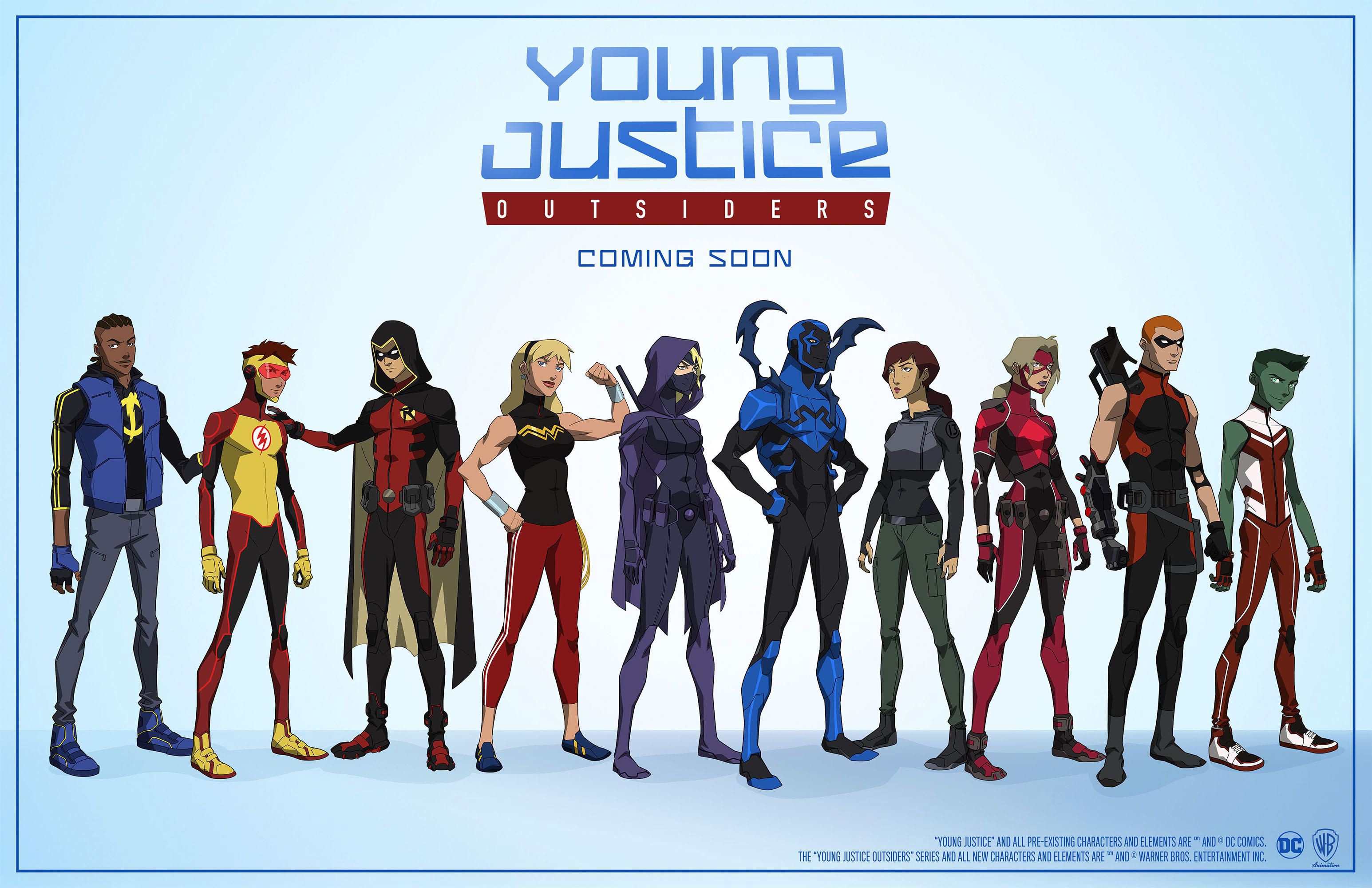 Where was this show? Because I wanted to watch THIS.
Where was this show? Because I wanted to watch THIS.
Lastly, in the spirit of positivity: the season?s greatest moment was the shameless nostalgia of Nightwing?s fever-dream in episode 23, ?Terminus?. It was, of course, bittersweet to have the original cast on-screen, with the original theme song playing as arrows, punches and catchphrases flew. Its stark contrast with the constant feeling of season three?s missed opportunities were a real gut-punch, showing what the creative team can do if they desire. But, all disdain aside, it was wonderful to see Wally West, one of my favourite characters, running around again.
That being said: we all know Artemis? vision of Wally to gain closure in episode 25, ?Overwhelmed?, isn?t the last we?ll see of him. We all expected to see a yellow-clad red-head burst out of the speedforce by the finale?s final moments, but were instead teased with a Legion of Superheroes ring [as if the cast wasn?t bloated already?]. No doubt Wally will make his triumphant return next season, or else DC will have a Reddit-based riot on their hands, considering this season absolutely failed on continuing storylines left at the cliff-hanger of season 2 as was promised.
On the subject of Wally?s return: the season?s gorging on DC?s character roster may be explained as the writers attempting to open themselves up to a season four which explores one or more of the ?Crisis? events. Terra participates in the captured meta-teen gladiatorial arena from the ?Final Crisis? limited spin-off run ?Terror Titans?. The Light is also now essentially comprised of Libra?s Secret Society of Super Villains in ?Final Crisis?, pointing toward the potential death of Martian Manhunter and Batman (or, due to the show?s confirmed ?return to focus? on the original cast in season four, these two deaths could be substituted for Miss Martian and Nightwing). After all, considering the criminal lack of Darksied in this season, an adaptation of ?Final Crisis? (without Superman traversing the Multiverse to fight a vampiric Ultraman, hopefully) could be the best way to have the God of Apokolips face off against the League, Outsiders and YJ team.
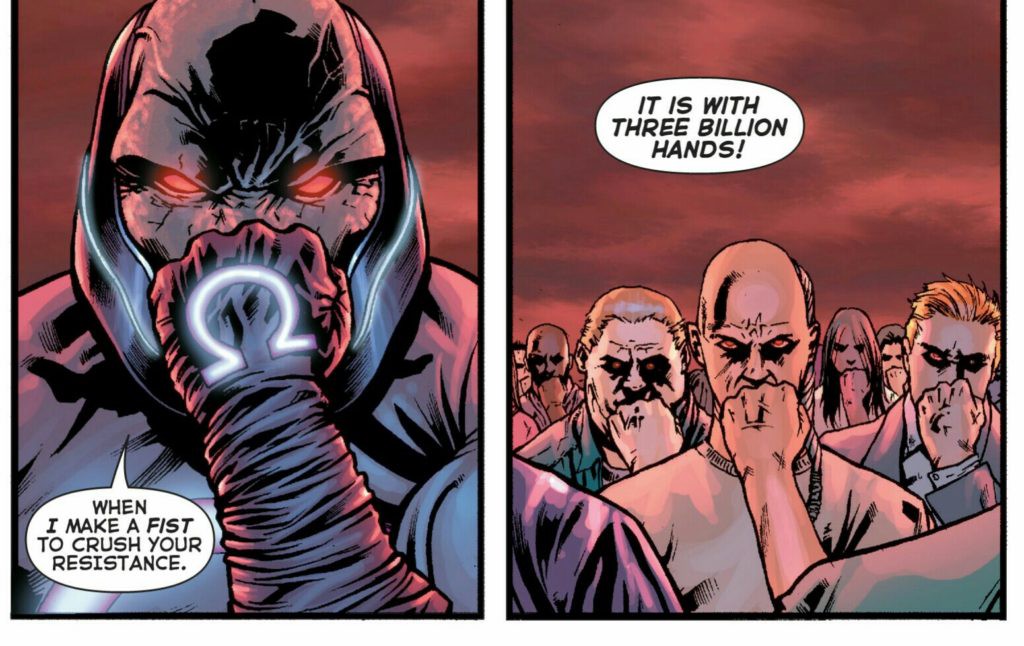 Darksied is.
Darksied is.
[On an associated tangential rant: Granny Goodness was absolutely not an adequate choice to be a compelling villain for an entire season. Compared to the interconnected conspiratorial puppet masters of The Light in season one, and the Machiavellian invasion of The Reach in season two, Granny?s hysterical cackling and monologuing felt like a regression in storytelling complexity.]
Introducing the Outsiders and other members of the classic Teen Titans roster (Starfire aside) indicates an interest in perhaps exploring parts of or all of acclaimed New Teen Titans team Wolfman and Perez?s other famous story: ?Crisis on Infinite Earths? (with Brion?s adviser Bad Samaritan possibly taking the role of Psycho Pirate, and Wally returning to take up the mantle of Flash once Barry disappears).
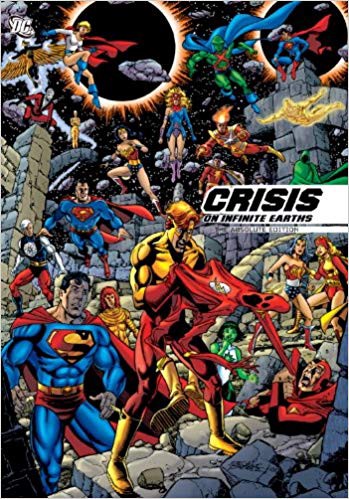
And now, we come to the season?s triumvirate of inexcusable offences: its confusing time-jump from season two; cramming a caricature of Donald Trump?s out-of-context soundbites into a Lex Luthor skinsuit; and the tokenised version of Halo.
This season?s time jump is incredibly jarring, because too much has changed. As the season opens, M?gann has decided to appear as a bald white Martian without any reason for the aesthetic change; this would have been an interesting route to have the character go this season (even if the design looks awful), as the grand reveal of the first season was that a portion of her power is always dedicated to the pretence that she is a green Martian. This, from her concerns about Conner finding her disgusting, to the racial genocides occurring on Mars, could have been a great character arc about self-acceptance, and integration into her new home world. It could have come with an expansion of her power, now that less of a part of herself is dedicated to a disguise. Instead, she?s simply plopped in front of us as chalky Professor X, and we?re expected not to question it.
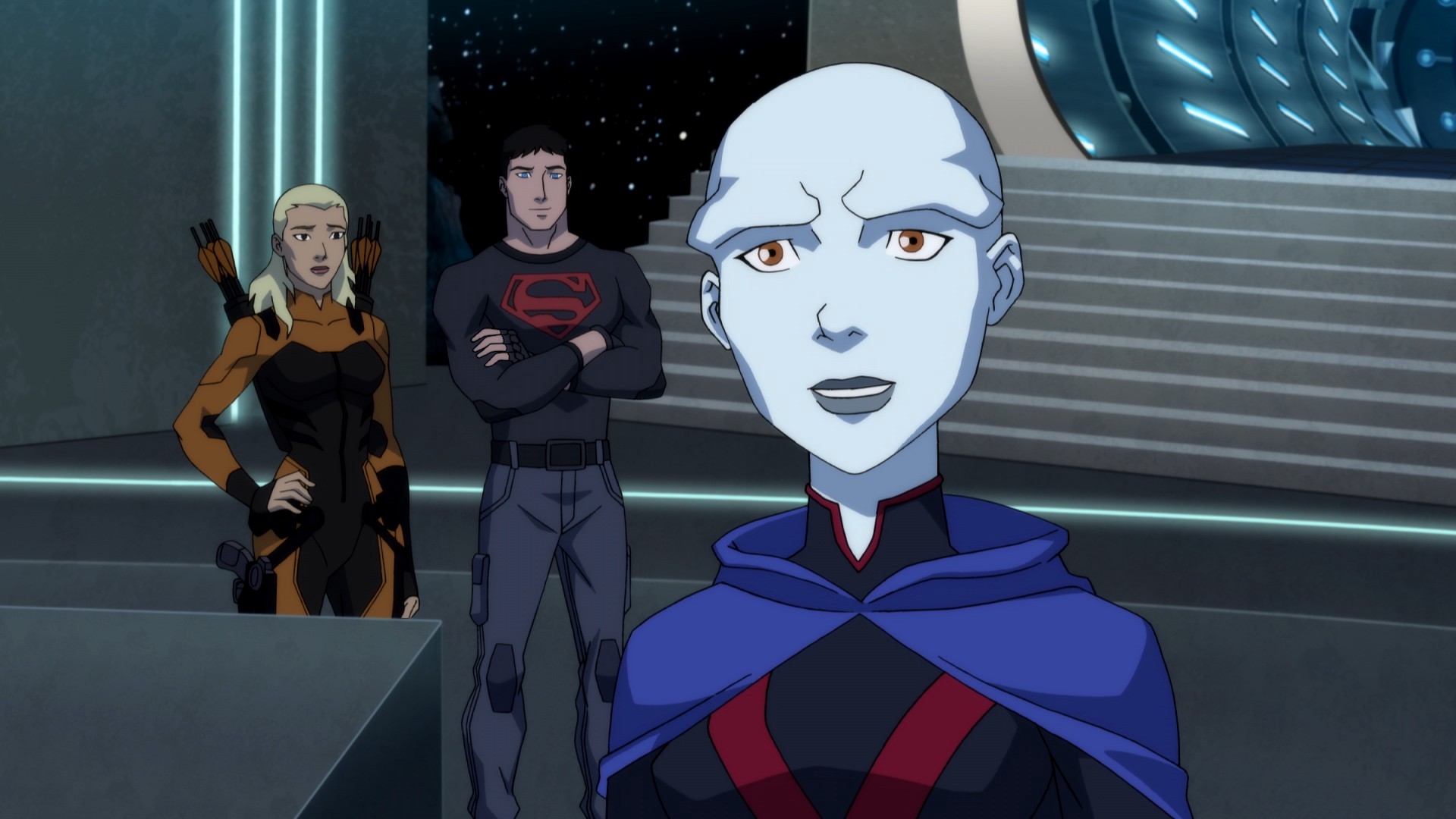
The same goes for Barbara: her paralysis by the Joker (from the iconic Alan Moore graphic novel The Killing Joke) is done between seasons, without ever being addressed or shown. Another of Joker?s heinous crimes, the murder of second Robin Jason Todd, was done in the time between seasons one and two. It would have been nice to get an episode dealing with Barbara?s restriction to the Oracle role, Batman?s sense of paranoia following his failure to protect his family, and possibly even the construction of Brother Eye to aid Batman Incorporated throughout the season. Instead, we got a Jason Todd tease a couple episodes in, and all other spectres of Bat-Family trauma received radio silence.
The most notable victim of this time jump (and, might I add, the inexcusably lazy animation style of slow-panning-camera-across-slideshow-of-stationarty-images-to-save-time-and-budget) is Aqualad. We see his succession to the title of Aquaman, following Arthur Curry?s return to Atlantis to become its full-time monarch, and his ascension to running the Justice League (though why Superman isn?t doing this, nobody knows). However, many fans have questions about episode twenty, ?Quiet Conversations?: namely, since when was Aqualad gay?
From the numerous comments on DC?s social media posts, I haven?t seen, personally, any animosity toward the character?s sexuality: only confusion at an apparently-unexplained change. It?s true that his comic book counterpart, Jackson Hyde, is gay in DC Rebirth. However, we?ve only ever seen Kaldur express love for Tula in the first two seasons, so seeing him in a new relationship with a new character without any set-up (particularly when the show seemed to be giving us a red herring with his friendship with Dolphin) is jarring. This appears to be retcon for reasons of ?representation? when, as other choices relating to Halo?s character have indicated, this is a factor driving many creative decisions about season three. Oddly enough, though, the showrunners deny this retcon in interviews:
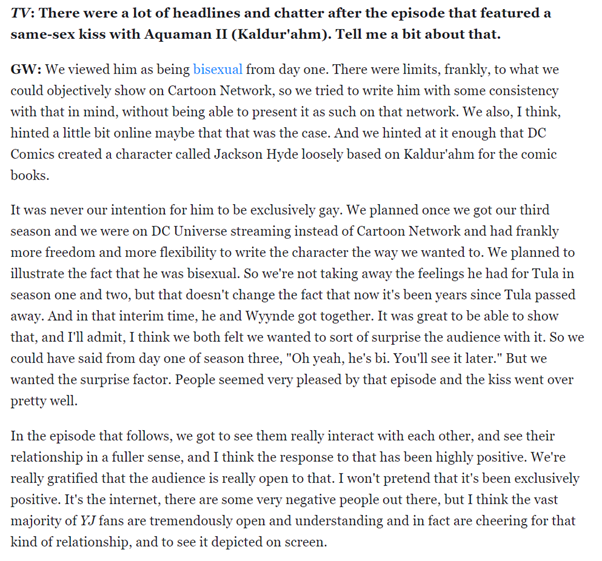
It?s odd that Brandon Vietti and Greg Weisman would claim that Kaldur has ?always been bisexual? though, as Aqualad was not an LGB character until Teen Titans: Rebirth. In his introduction in Brightest Day (as Jackson Hyde), published four months before Young Justice was released, whilst it was still in development, he had a girlfriend. Again, for anyone attempting to mischaracterise my position: no problem with gay characters. At. All. It?s just jarring to make a retcon this late into a twenty-six-episode season, with no setup behind it, among all the other political references now polluting the show, and then gaslight the viewers by claiming it was the plan all along when the character introduced at the same time in the comics wasn?t gay.
[As an interesting aside: Wynnde, his boyfriend, is a member of Arion?s Atlantean guard. Arion appears in ?Crisis on Infinite Earths?, so it would seem my ?Crisis? theory is not unfounded.]
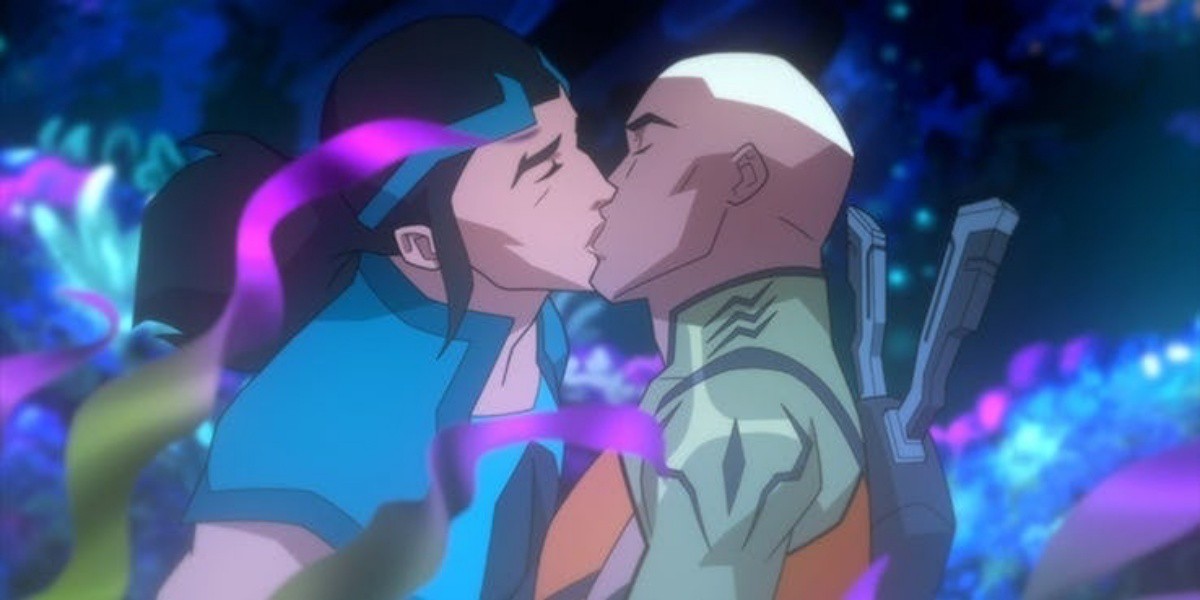
On the topic of sudden shifts in character: season three?s sudden injection of Lex Luthor with a CNN compilation of Trump?s headline-making soundbites is, even to those who detest the big bad orange man, inexcusably lazy writing. To simply impose the bogeyman of the political zeitgeist onto a villain that is pre-established is disrespectful to the character?s legacy and continuity. And this has been without the show making Luthor the US President, which they will undoubtedly attempt to do next season. But, no matter how many times you have Luthor say ?Fake news?, ?There are good people on both sides? (a quote deceptively and repeatedly used out of context by smear merchants to pretend Trump allies himself with white nationalists), or have him talk about ?owning hotels in a lot of countries?, Lex Luthor will never be Donald Trump.
There?s a reason Jessie Eisenberg?s Lex drew comparisons to Silicon Valley technocrats (not only due to his performance in The Social Network). Lex is a power-mad, paranoid tycoon who wants a globalist world reliant on his monopolised technology and services. Lex doesn?t allow himself to be taken in by carnal distractions, and even his only child is a repurposed and estranged Superman clone (Conner Kent). Luthor is always the man behind the curtain, tight-lipped about the Machiavellian machinations smouldering inside his shining scalp.
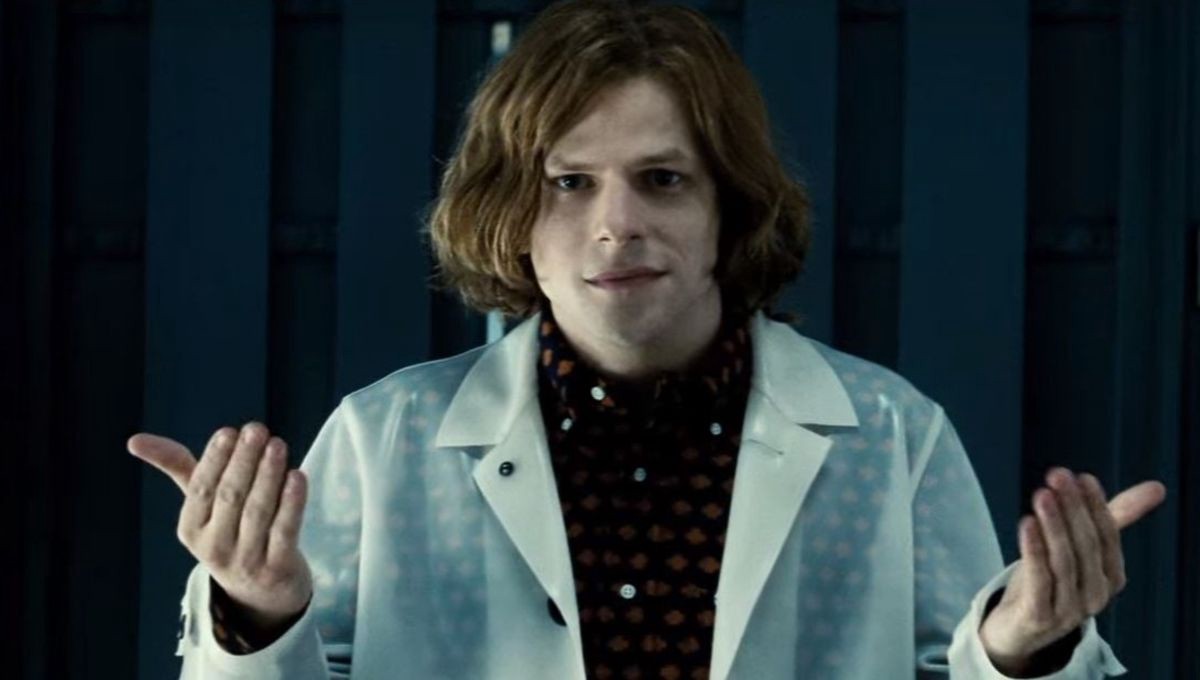 Please give me more of this man as Lex Luthor.
Please give me more of this man as Lex Luthor.
Trump, love or hate the guy, is an American nationalist, loves the limelight, is famous for his Playboy lifestyle (to the extent where Bruce Wayne comparatively needs to up his game), and is responsible for massive deregulation of the federal government to relinquish bureaucratic power over American citizens.
Therefore, not only is Luthor?s dialogue cringe inducing, and threatens to ostracise the attention of a significant portion of the viewers, but it also demonstrates a misunderstanding of Lex?s character (or, even worse: a wilful ignorance to the comic books in favour of political partisanship) by the writers.
As one Reddit user put:
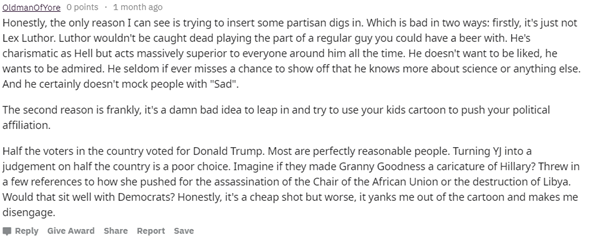
And now we come to the most irritating and egregious part of season three: Halo.
It?s worth reading these interview extracts before I launch my criticism, so we can fully understand why this character is a deadweight in this season:
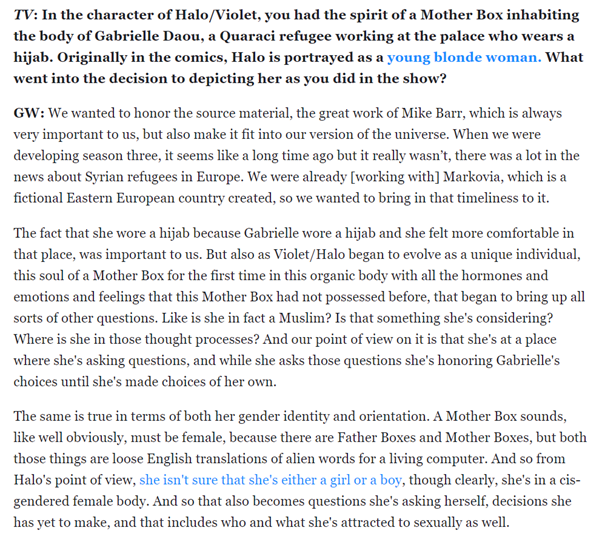
And, whilst not directly related to Halo, this final piece is indicative of the ideological approach the writers had to constructing characters this season:
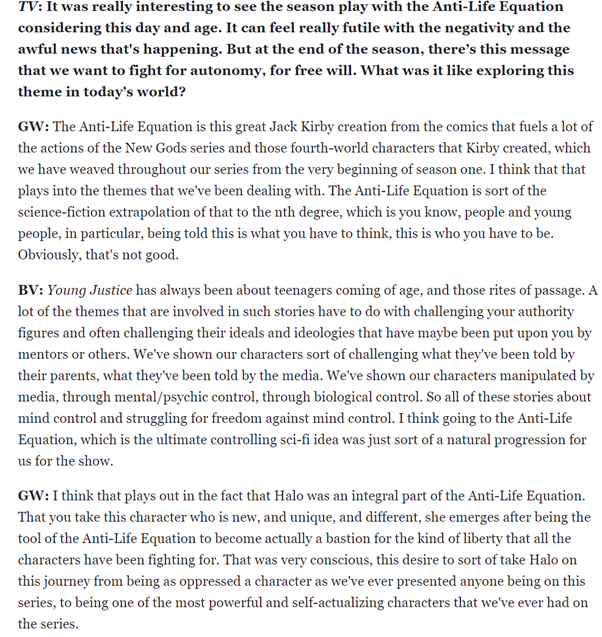
Here, Vietti and Weisman explain exactly why Halo?s reinvention in Young Justice: Outsiders is a bad character: the entire narrative is founded on an oppressed minority gaining power. This is a cultural Marxist revenge fantasy: the uprising of ?downtrodden underclasses? to bring retribution upon those who ?kept them down?. This does not make the character heroic, as there is no element of sacrifice for Halo. She is immortal, and has a laundry list of other powers given to her by the Mother Box. Her character?s arc is constructed around virtue signalling the writer?s empathy for Syrian refugees; to the point where she wears a Hijab without religious motivation, as explained in a painfully clunky exposition scene between her and Artemis. The character then identifies as non-binary, due to her integration with the alien computer; this is then ignored by the writing team, as everyone in the season calls her she. [Also: the gender is in the word MOTHERBOX, as opposed to FATHERBOX. Nice one, writer?s room?]
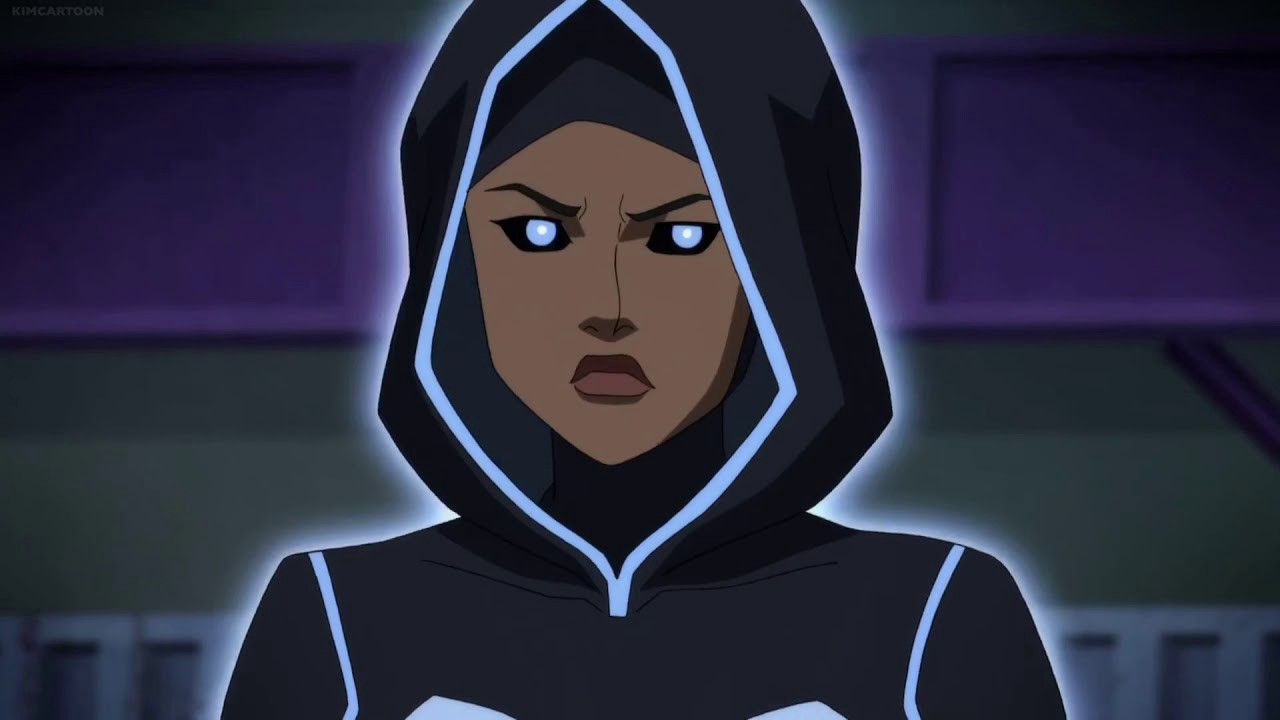 The identity group bingo the writers play here is painfully transparent.
The identity group bingo the writers play here is painfully transparent.
When the elements of the original character are finally introduced mid-way through the season, after we have already been exposed to this detestable combination of poor voice acting, lack of personality, and being completely overpowered, it?s too late to make the character interesting. Despite them stating that they wished to ?stay faithful? to the source material, having her retain some of Violet Harper?s comic book sociopathy (inverting the comic book names here too, for no reason beyond that they could get away with making Gabrielle sound more Middle Eastern), they have already made her character completely alienating to an audience who are already invested in two seasons of complex characters.
Now, to play [Blue] Devil?s Advocate: it is true that the Aurakle entity inhabiting Violet Harper?s corpse (or the Mother Box technology animating Gabrielle?s) can transition lucidly between bodies, and that in Justice League of America: Another Nail Halo is a black woman. But this does not make the character any less unlikable for her replacement of character traits with identity markers in the series. People find Daisey Ridley?s Rey in Star Wars and Brie Larson?s Captain Marvel just as dull for their lack of story and excessive mastery of everything: it?s an issue with shallow characterisation, not misogyny, racism, or any other slanderous label lobbed at critics of openly-leftist media.
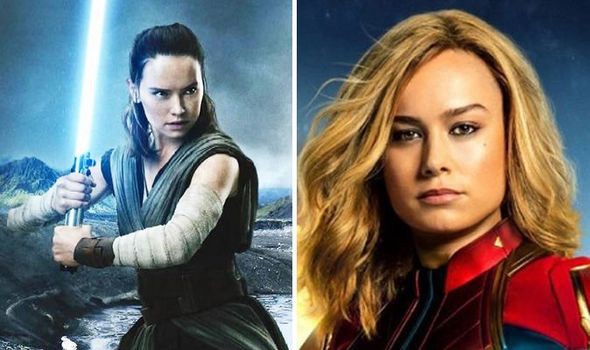 [Come to think of it: amnesiac past, excessive power, lack of emotion in performance? Aren?t these three all the same character?]
[Come to think of it: amnesiac past, excessive power, lack of emotion in performance? Aren?t these three all the same character?]
So, why did I bother writing this review in the first place, if all I?m doing is directing my ire at what was once a great show? It?s because Young Justice is, yet again, another intellectual property hijacked by those obsessed with contemporary politics, to be a vehicle for propagandising their beliefs. It has happened with Marvel?s comics, and is brazenly admitted on the Women of Marvel podcast; to the point where Sama Amanat admits her activism is causing a dramatic tanking of sales numbers and the cancellation of books, but believes it is worth bankrupting the industry to push the ?correct? political message. It has happened with Star Wars, and will no doubt continue to occur with box office repercussions for Rise of Skywalker just as it (unfortunately and undeservedly) did for Solo: A Star Wars Story.
Simply put: if you?re lucky enough to inherit such a rich and established franchise legacy, it?s your obligation to be faithful to it, and appease the fans who made it so successful in the first place. I?m tired of the ?get woke, go broke? model because, whilst the injection of vitriolic politics justifies the failure of an intellectual property if enough people withdraw monetary support for it, all it ends up with is less nice things for us all.
![A Decade’s Wait For Disappointment: Young Justice: Outsiders [Season 3]](https://911weknow.com/wp-content/uploads/2020/09/a-decades-wait-for-disappointment-young-justice-outsiders-season-3-628x275.png)

